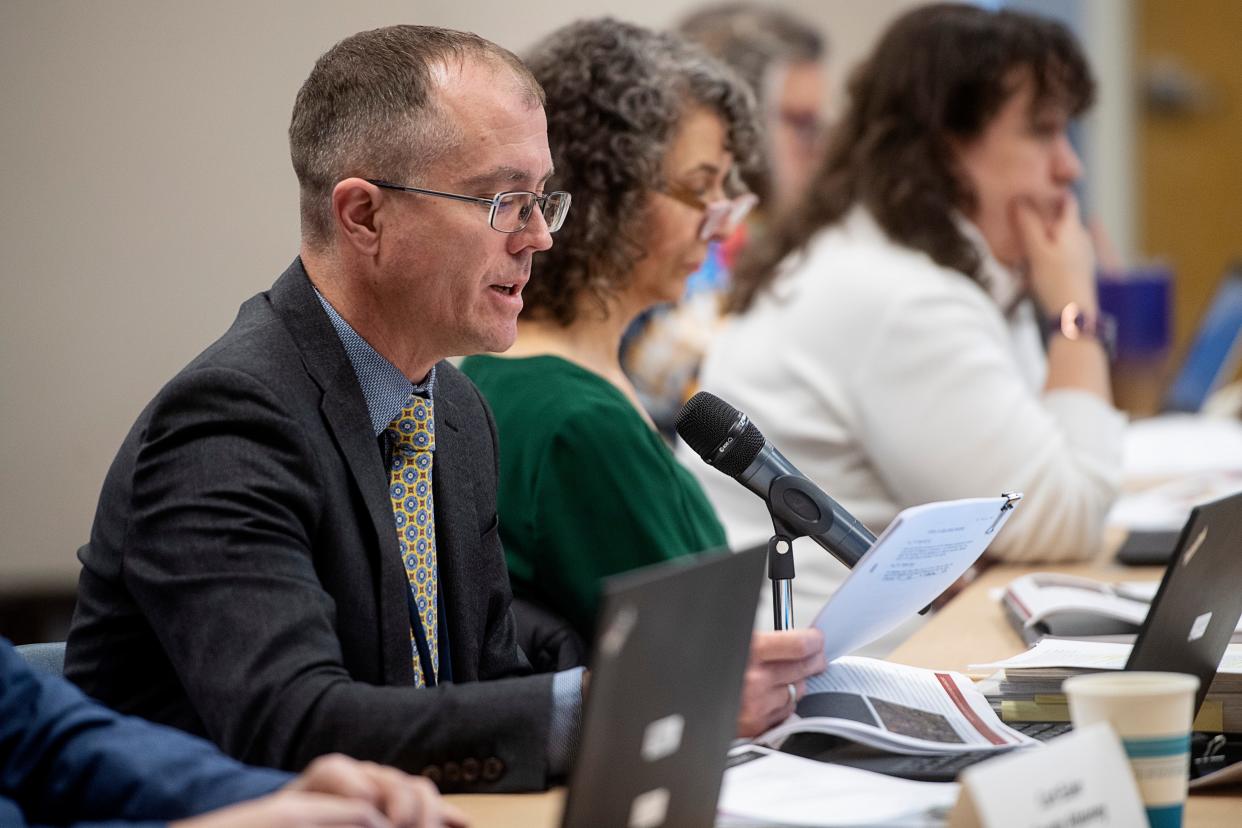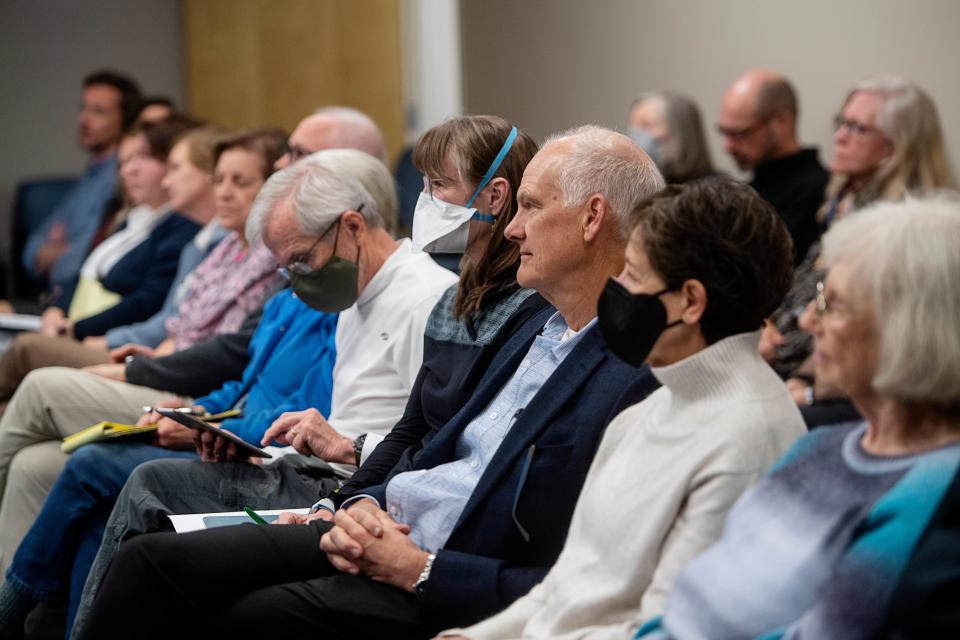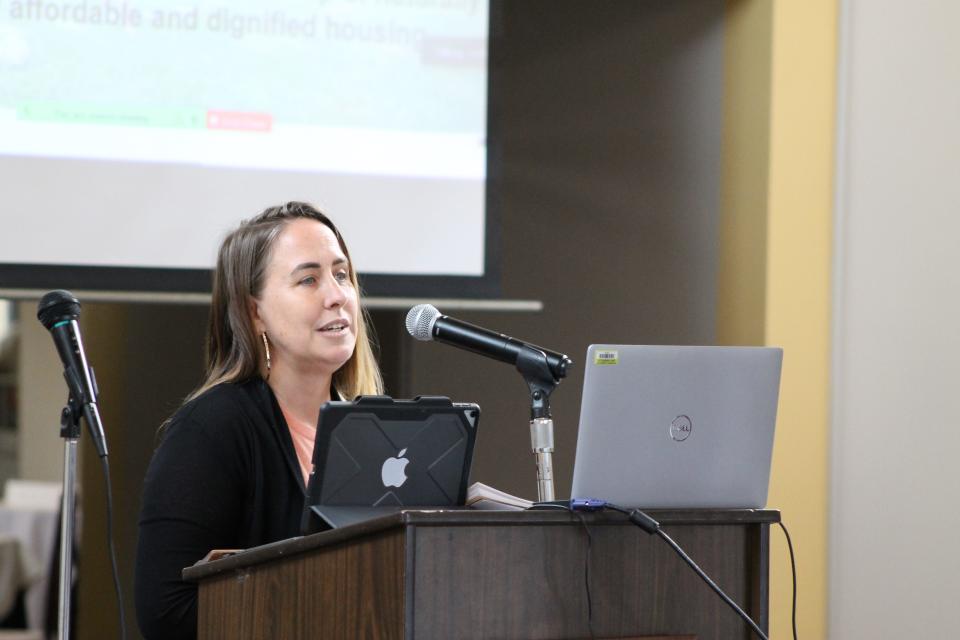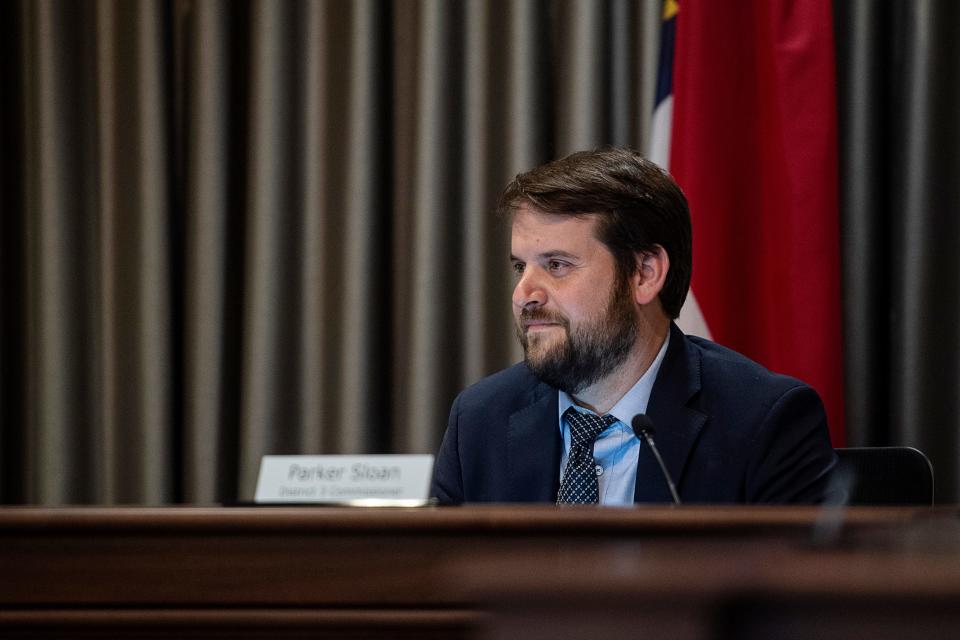Buncombe Comprehensive Plan OK'd despite some protests over potential development growth

ASHEVILLE - It's a recognition of changing times. That's how Planning Director Nathan Pennington referenced the Buncombe County 2043 Comprehensive Plan, which was unanimously approved by the board of commissioners May 16 — though for some, change doesn't come easy.
The 215-page document will guide future development, conservation and transportation in the county for the next 20 years.
More than 150 people spilled across multiple overflow rooms in the county's downtown administration building, and 34 people signed up to speak.
Despite cautions from county staff, plus a consulting firm, that the plan only represents "policy guidance," and not guaranteed changes to laws, ordinances or zoning, neighborhood groups from the county's coves and wooded residences turned out to oppose the plan, or request amendments to newly proposed land use designations contained within it.
Several speakers said that it wasn't change they were afraid of, but an issue of infrastructure, safety or environmental protection.
Previous coverage: Buncombe Comprehensive Plan heads to final vote; Will guide county growth, development
More: Buncombe County Comprehensive Plan 2043: Input from kids to seniors shapes next 20 years

"Radical change," was the phrase used by Reb Haizlip, president of the newly formed Beaverdam Valley Neighborhood Association to describe the designation.
Like many of those sharing concerns from the Pinners Cove, Beaverdam Valley and Lynn Cove neighborhoods, among others, residents feared proposed land use designations that would identify portions of their communities as areas suited for "mixed use neighborhoods," would result in "high density" development without the proper infrastructure.
They advocated, instead, for the re-designation of all land within the bounds of the neighborhood to "rural community."
More: Two 115-room hotels planned in downtown Asheville; Where and how big will they be?
'A place of belonging'
But for others, the plan was a welcome look at the way ahead. There were several representatives from the Emma community, a West Asheville neighborhood with a large Hispanic population, who spoke in support of the plan.
Alan Ramirez, a resident and member of the PODER Emma Community Ownership team, said they wanted to highlight the equity-building efforts contained within it.
"We need this plan to invest in historically marginalized communities so that the future outcomes are different,” Ramirez said, and expressed a willingness to be part of the plan moving forward.

Andrea Golden, another Emma resident and member of the plan's steering committee, said the community was excited about many elements of the document.
The plan's 41 recommended actions, paired with 35 policies, span from implementing new equity-oriented housing policies to developing a county parks and recreation master plan.
“We’re hopeful that the equity opportunity tools, the small area planning process, the updates to zoning and code, amongst other actions outlined in the plan, can ensure that neighborhoods like the Emma community to be a place where longtime residents can remain, and that low income newcomers can also come to and find affordable housing and a place of belonging," Golden said.
More: New Ingles on Patton Avenue approved; Emma community members rejoice
More: Leveraging public dollars, co-op ownership: Leadership Asheville Forum addresses affordable housing
'A climate for positive planning'
Exhaustive and wide-ranging, the plan encompasses nine central planning topics:
Growth, equity and conservation
Transportation and connectivity
Farms, forests and environmental conservation
Economic development, education and jobs
Health and recreation
Hazards and resilience
Infrastructure and energy
Implementation of the plan
Find a draft of the 2043 Comprehensive Plan at https://bit.ly/3NELUDw. The document was the result of nearly 200 input sessions and thousands of public comments that spanned two and a half years.
The Buncombe County Planning Board held a public hearing on the plan May 2 and unanimously recommended to the Board of Commissioners that the plan be adopted.
Tim Collins, a planning board member, was among the people to speak at the May 16 meeting. He pushed back against some of the neighborhood messaging, specifically some material that referred to the comprehensive plan as a "zoning" effort.
“It is not," he said. "It is a planning and policy document.”
More: Asheville City Schools names new superintendent with July start date
But for some, such as Covewood Road resident Marian Ladner, despite the distinction, she still found any re-designation of the area dangerous.
“My experience is that when you have a comprehensive plan, it is used by future generations as a framework," she said. "And that framework has very hard edges.”
At the onset of the meeting, Pennington stressed that the plan covers a lot of areas, and told people to not "lose sight" over one area of concern, as adoption does not "expand, diminish or alter" existing regulations, nor does it rezone any areas when approved.
“The time for discussion and debate over changes comes after the comprehensive plan through a series of text amendments, and that’s where we see evaluation of things like density, zoning changes and standards," Pennington said.
While no plan will please everyone, he said, he and staff believe this document will "establish a climate for positive planning."
More: Site plans: Denver-based brewer proposes new location in Asheville

Commissioner support
Though sympathetic to resident concerns, or grateful for the words of support, commissioners were excited by the plan's approval — for many of them, a long time coming.
“I don’t want to live anywhere else,” said Commissioner Parker Sloan. "We want this place to be a place for everyone, of all incomes and backgrounds ... those that are coming here anew, or those with the same last name as the mountain or the road that they live on. That only happens if we make choices to enable that kind of economy and infrastructure.”
Commissioner Amanda Edwards said the comprehensive plan is "how we set out vision for our community, and it's how we make that vision a reality."
Likewise, Commissioner Al Whitesides said sometimes painful or not, "it's what we've got to do."
He remembered words from his father: "If we don’t control growth, growth is going to control us."
Sarah Honosky is the city government reporter for the Asheville Citizen Times, part of the USA TODAY Network. News Tips? Email shonosky@citizentimes.com or message on Twitter at @slhonosky. Please support local, daily journalism with a subscription to the Citizen Times.
This article originally appeared on Asheville Citizen Times: Buncombe Comprehensive Plan approved; Will guide future county growth

